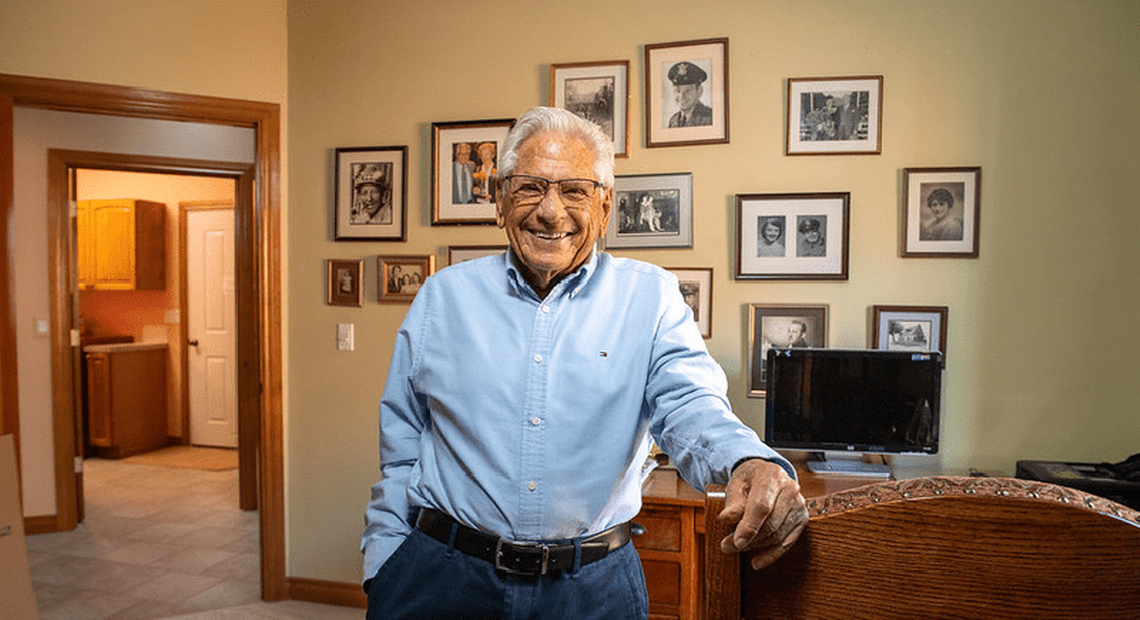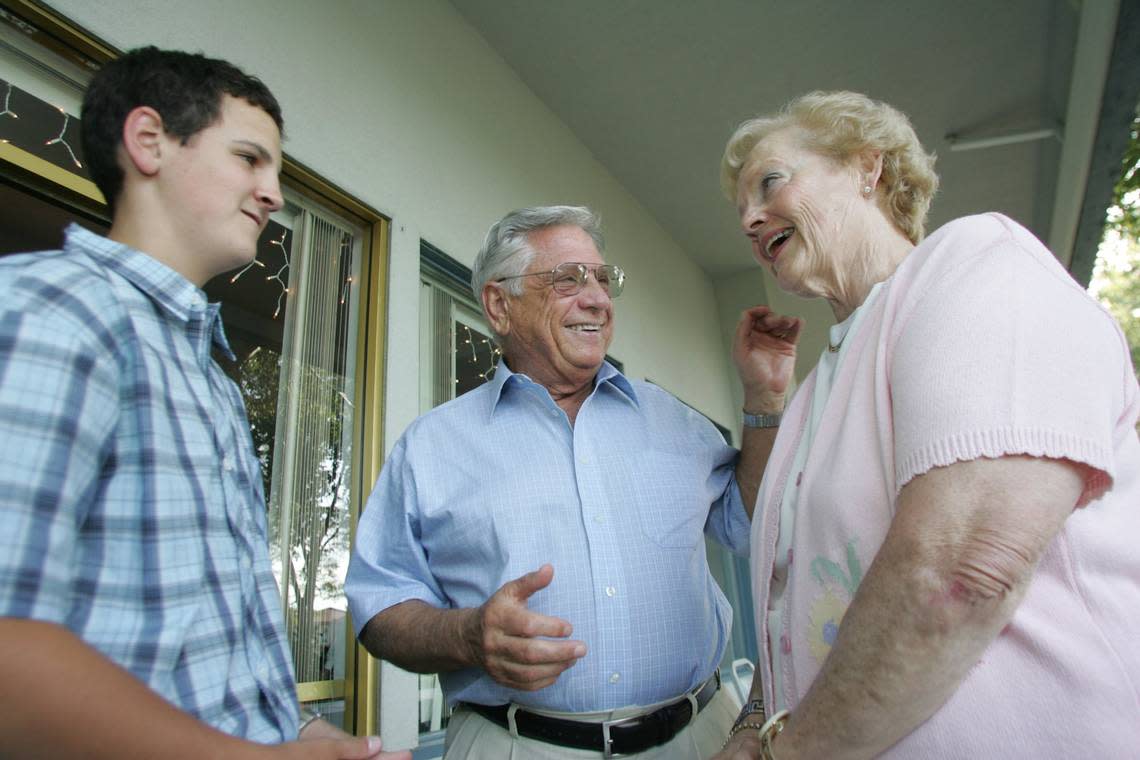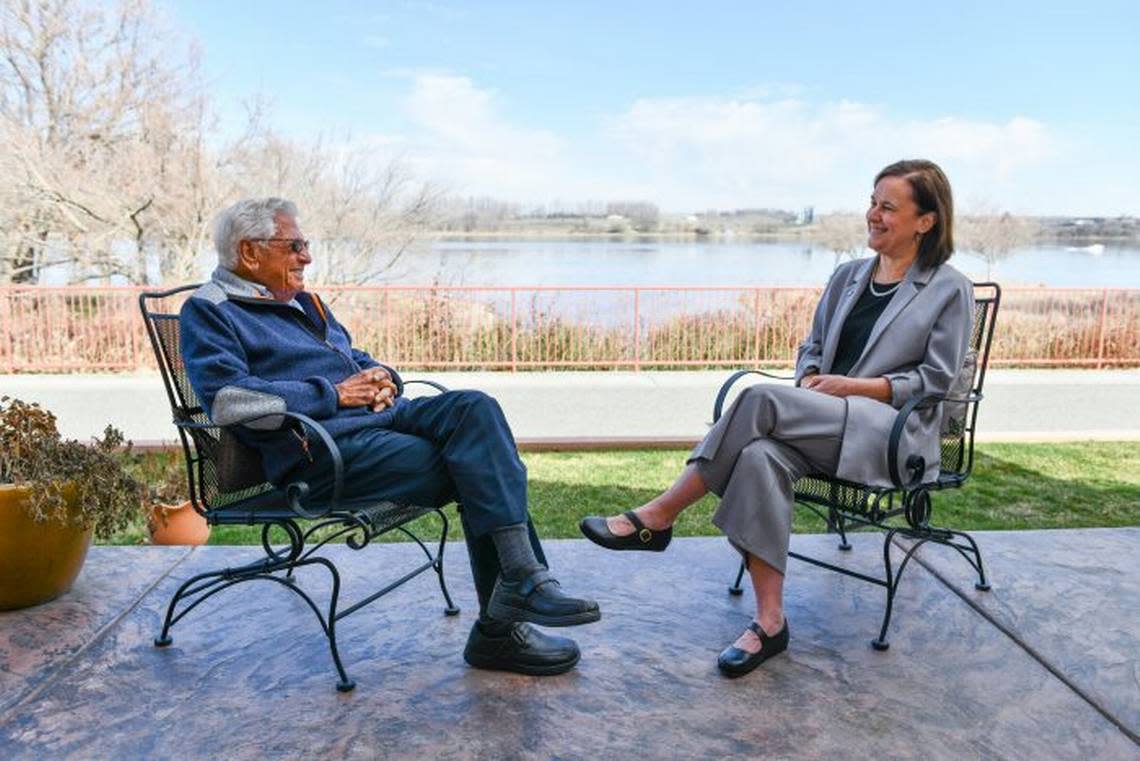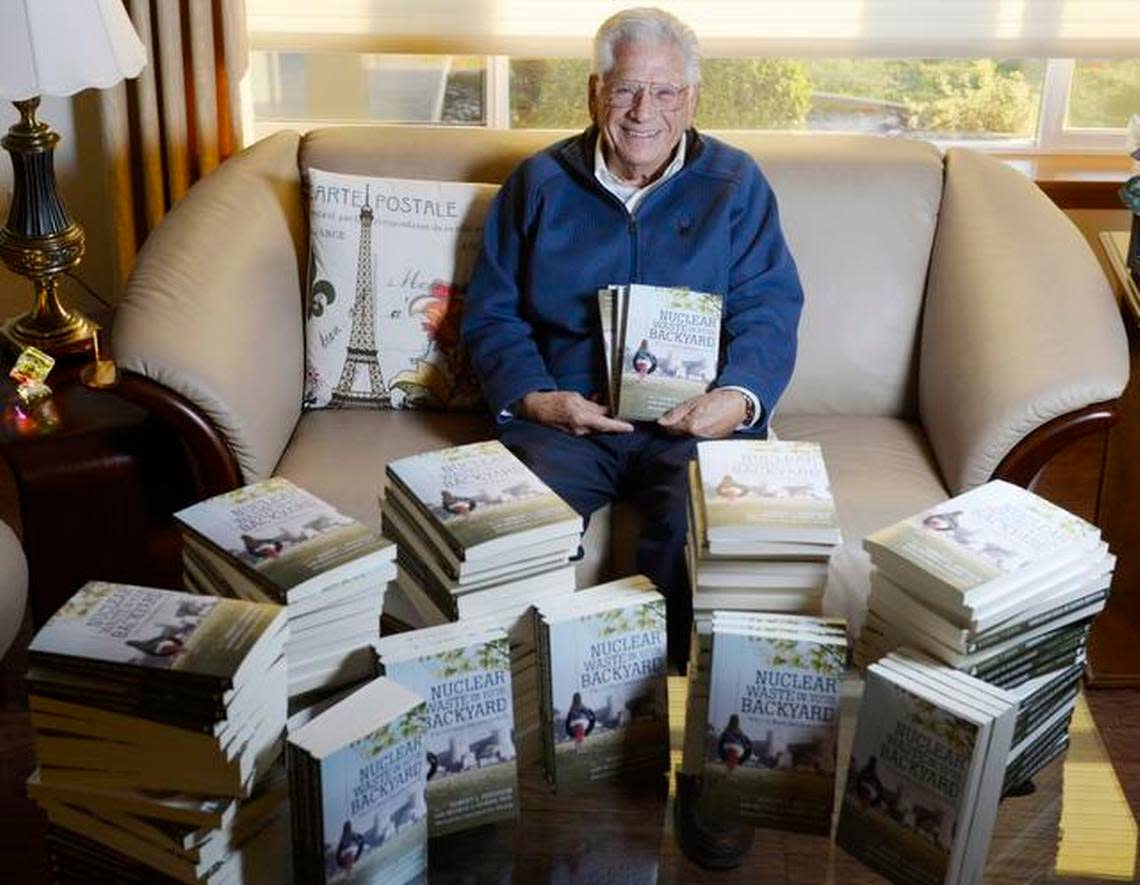Tri-Cities and Hanford ‘visionary’ dies. He donated $100,000s to local causes
A champion for the Tri-Cities economy and philanthropist who donated hundreds of thousands of dollars to improve the community and advance energy and education causes died Friday.
Bob Ferguson, 89, had been living in the Chicago area near one of his daughters after having a serious stroke a year ago. He had a setback in his recovery when he contracted COVID-19 this summer.
Ferguson was “an incredible leader who found practical solutions to extremely complex problems,” said Karl Dye, president of the Tri-City Development Council.
Ferguson was the first chairman of TRIDEC, then called “the Tri-Cities Nuclear Industrial Council” and played a central role in the growth of the Tri-Cities, Dye said.
He had an “astonishing career,” wrote C. Mark Smith in a 48-page biography of Ferguson finished this spring.

Ferguson grew up as the son of a north Idaho mill worker and had to make his own opportunities, said his late wife, Katie, in 2010, at a community tribute to her husband.
He left home during high school to study at Gonzaga Prep in Spokane and then attended Gonzaga University, using his interest and talent for math and science to becoming a nuclear physicist, according to Smith.
B Reactor to entrepreneur
He would be one of the youngest reactor operators at the Hanford site’s now-historic B Reactor.
During President Carter’s administration he was the Department of Energy deputy assistant secretary, before returning to the Tri-Cities to manage construction of the Fast Flux Test Facility, a 400-megawatt research reactor, at Hanford, according to Smith.
“A proven problem solver and manager, he was persuaded to assume the management of the troubled Washington Public Power Supply System, but arrived too late to keep it from ultimate collapse,” Smith wrote about him. “The experience cost him his health — resulting in quadruple bypass heart surgery.”
Ferguson transitioned his career to become a Tri-Cities entrepreneur next.

He was never short of ideas, said Duane Schmoker, managing director of SE&C, during the 2010 tribute to Ferguson.
Ferguson was president of R.L. Ferguson & Associates from 1985-91, and in 1998 founded Nuvotec and served as chief executive officer and chairman of the board until 2007.
Ferguson became a champion for nuclear power, Hanford nuclear reservation cleanup and economic development, said Frank Armijo, a former vice president for Lockheed Martin, at the 2010 tribute.
“Bob Ferguson was probably the most consequential single person in the long history of the Hanford site, and certainly the most important in the economic development of the Tri-Cities since Sam Volpentest,” Smith said.
He would occasionally move away from the Tri-Cities, for career opportunities or to live closer to his daughters.
Hanford energy ‘visionary’
But “he would always come back to the Tri-Cities,” said Gary Petersen, the retired vice president of federal programs at TRIDEC and a longtime friend of Ferguson.
Ferguson and two other Tri-Cities business leaders, Bill Lampson and Petersen, successfully sued the federal government in 2010, forcing it to resume the licensing review of Yucca Mountain, Nev., for disposal of the nation’s high level radioactive weapons waste and used commercial nuclear fuel.
In 2020 the three co-founded Clean Up Hanford Now, a Tri-Cities nonprofit advocating for accelerating cleanup at the Hanford nuclear reservation and promoting a new clean energy mission for the site in Eastern Washington.
Petersen called Ferguson a “visionary.”
“He firmly believed Hanford needs to be cleaned up so it can get on with an energy mission,” Petersen said.
Ferguson was interested not only in nuclear energy, but carbon sequestration, large-scale energy storage and hydrogen technology, Petersen said.

In 2021, Ferguson donated $500,000 to Washington State University Tri-Cities to endow a faculty position in energy and environment as the first step to developing a future institute at the university to analyze the best ways for clean energy production to grow in the Tri-Cities area and to educate workers for the industry.
Previously the Ferguson family donated $100,000 to start the William R. Wiley Scholarship for Washington State University Tri-Cities students.
The scholarship honoring Ferguson’s friend Wiley, a former PNNL director, would help black and other minority students studying science, technology, engineering, math or nursing in the Tri-Cities.
Ferguson also was a major donor for the Ferguson Education Center, a Montessori school, that opened in 2020 at Christ the King Catholic School in Richland. It was named for his wife.
Kindness to a stranger
His generosity and kindness also extended to individuals, said those who knew him.
On one of his many trips to Washington, D.C., to lobby for Tri-Cities interests, he was approached on a cold winter day in 2004 by a man recently released from prison, said his daughters at the 2010 tribute, after hearing the story by chance from a friend.
Ferguson thought twice about giving him money.
Instead, he marched the man past an objecting doorman at a hotel, saying, “He’s with me.”
He checked the homeless man in and paid for breakfast. He told the staff to help the man contact a shelter in the morning and then advised the man to make good use of his new start on life.
In his retirement Ferguson wrote books, including on the nation’s nuclear waste issues.

His last book, co-authored with Smith was “Something Extraordinary: A Short History of the Manhattan Project, Hanford and the B Reactor” published in 2019.
“While we are deeply saddened by the passing of Bob Ferguson, his innovative leadership of our organization, community and country will never be forgotten,” Dye said.
Ferguson died in the Chicago area surrounded by his daughters Cathie Kolinski of Chicago and Colleen Ferguson Lowry of Portland, a granddaughter and his caregiver.
His daughters plan a Mass in the Chicago area Saturday and then a Celebration of Life Mass in the spring at Christ the King in Richland.
